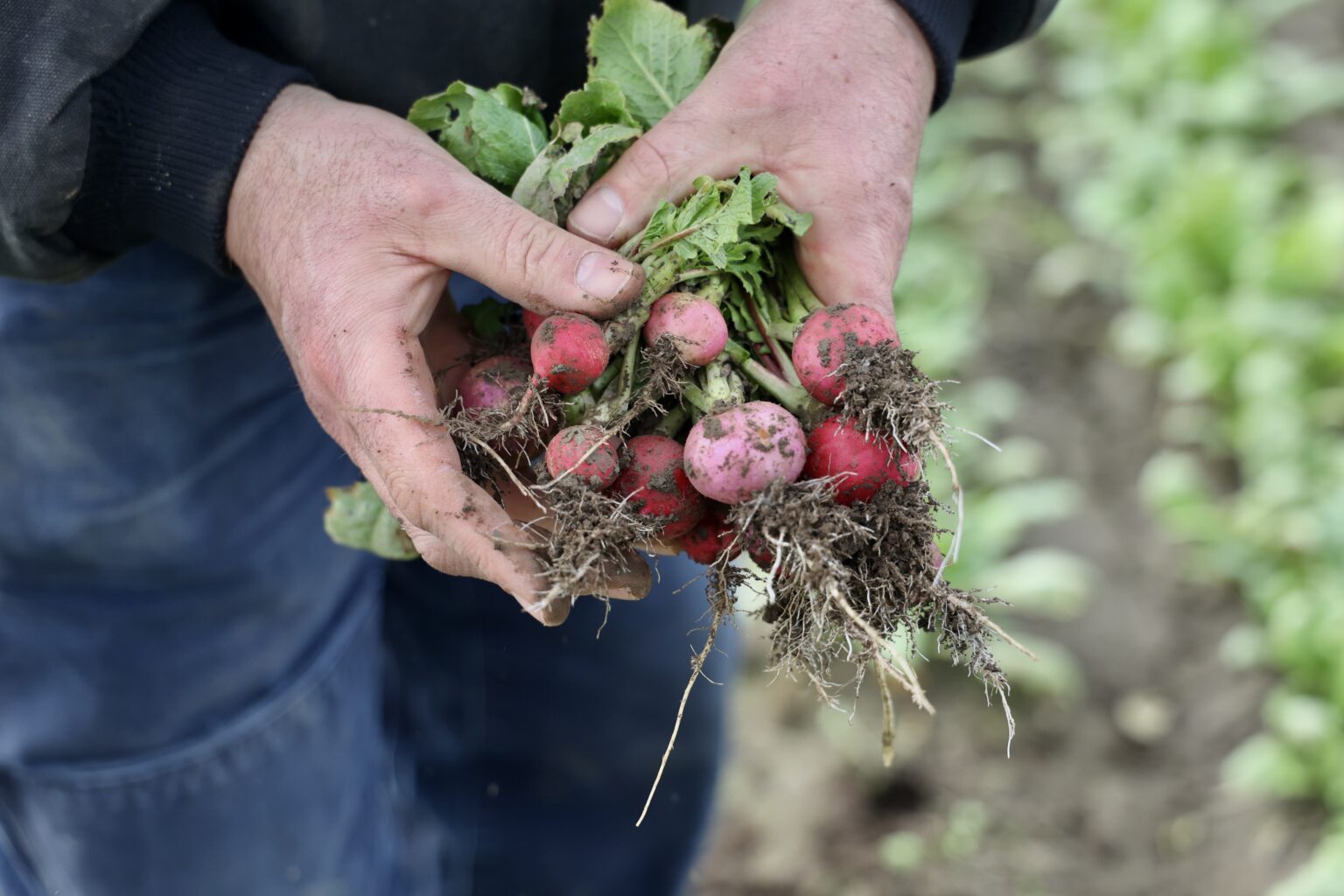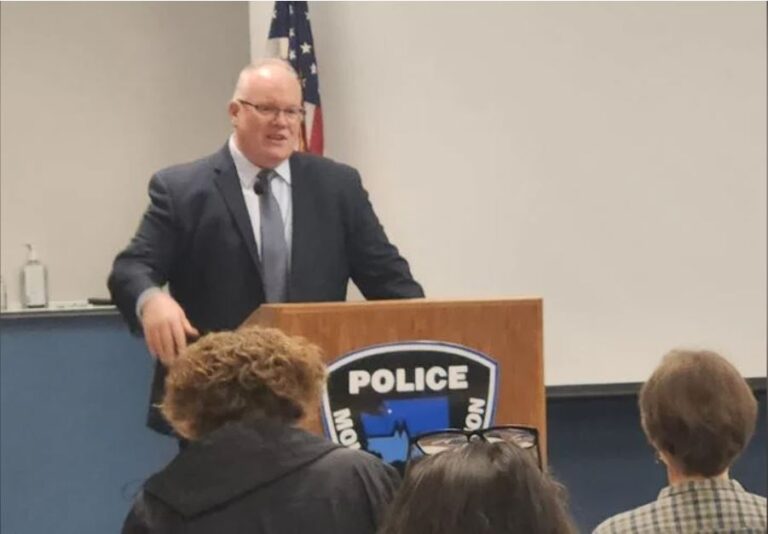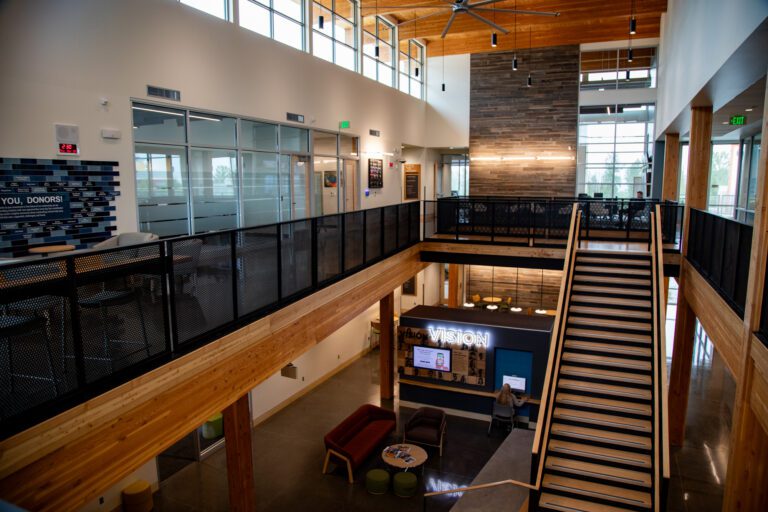EVERSON — Skuter Fontaine finally broke ground last week to prepare his farm, Terra Verde, for planting garlic. Sowing the crop on his 20-acre vegetable and berry farm usually happens in November, before temperatures drop and the ground freezes.
But Fontaine and other Whatcom County farmers had to abandon their routines after the Nooksack River breached its banks late last year, causing devastating floods that have left them reeling and wondering about their futures.
“We were in shock,” Fontaine said. “It hit us pretty bad.”
Though many residents and businesses in hard-hit Sumas and throughout Whatcom County have received assistance through the Federal Emergency Management Agency and the U.S. Small Business Administration, Terra Verde and other farms don’t qualify. The U.S. Department of Agriculture handles their cases and provides direct aid or loans for damaged land and infrastructure based on eligibility.
“Different agencies cover different things, and we all try to work together to get people what they need,” FEMA spokeswoman Tiana Suber said.
With much attention on FEMA as a source of aid for flood victims, the agency is often the first stop for those in need. When Fontaine’s application for FEMA assistance was denied, no one told him to seek help from the USDA.
“The FEMA stuff was a little bit tricky to navigate,” Fontaine said. “And it’s actually kind of a pain in the ass.”
The bureaucracy of government assistance is one of the many obstacles farmers face as they work to make a full recovery and prepare for future flood disasters.
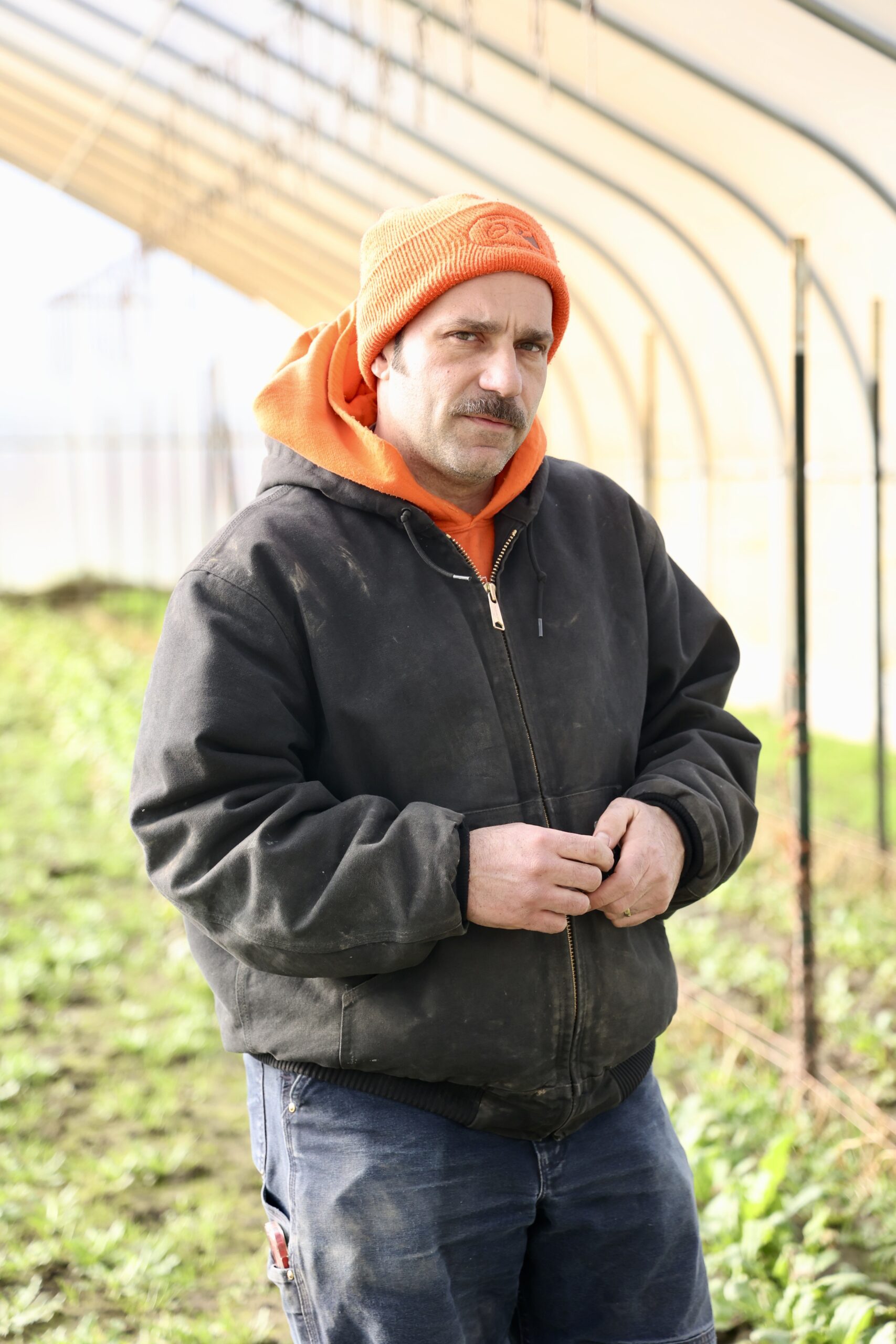 Skuter and Amy Fontaine started Terra Verde Farm 15 years ago with a quarter of an acre of leased land in Everson. (Victoria Corkum/Cascadia Daily News)
Skuter and Amy Fontaine started Terra Verde Farm 15 years ago with a quarter of an acre of leased land in Everson. (Victoria Corkum/Cascadia Daily News)
“Every decade we may get a pretty significant flood, but this one rose above all of those,” said Henry Bierlink, executive director of the Washington State Red Raspberry Commission.
A gauge on the Nooksack River near Nugents Corner confirmed a historic 150.35 feet for the river on Nov. 16, 2021.
Floodplains, though vulnerable to occasional deluges, hold highly fertile soil. Whatcom County is ranked among the top 3% of crop-producing counties in the country. Dairy, raspberries and blueberries compose the largest segment of the county’s production, but beef, potatoes and other vegetables also are a substantial portion.
While floods ravaged dairies in Whatcom and British Columbia and resulted in a feed shortage across Washington, small farms also suffered. Many were left with losses in the tens of thousands to hundreds of thousands of dollars.
Terra Verde, along with more than 40 small farms across Whatcom and Skagit counties, produces much of the region’s vegetables and berries sold at markets, to restaurants and local grocery stores and in Community Supported Agriculture programs, where residents pay farmers directly to receive a weekly box of fresh produce.
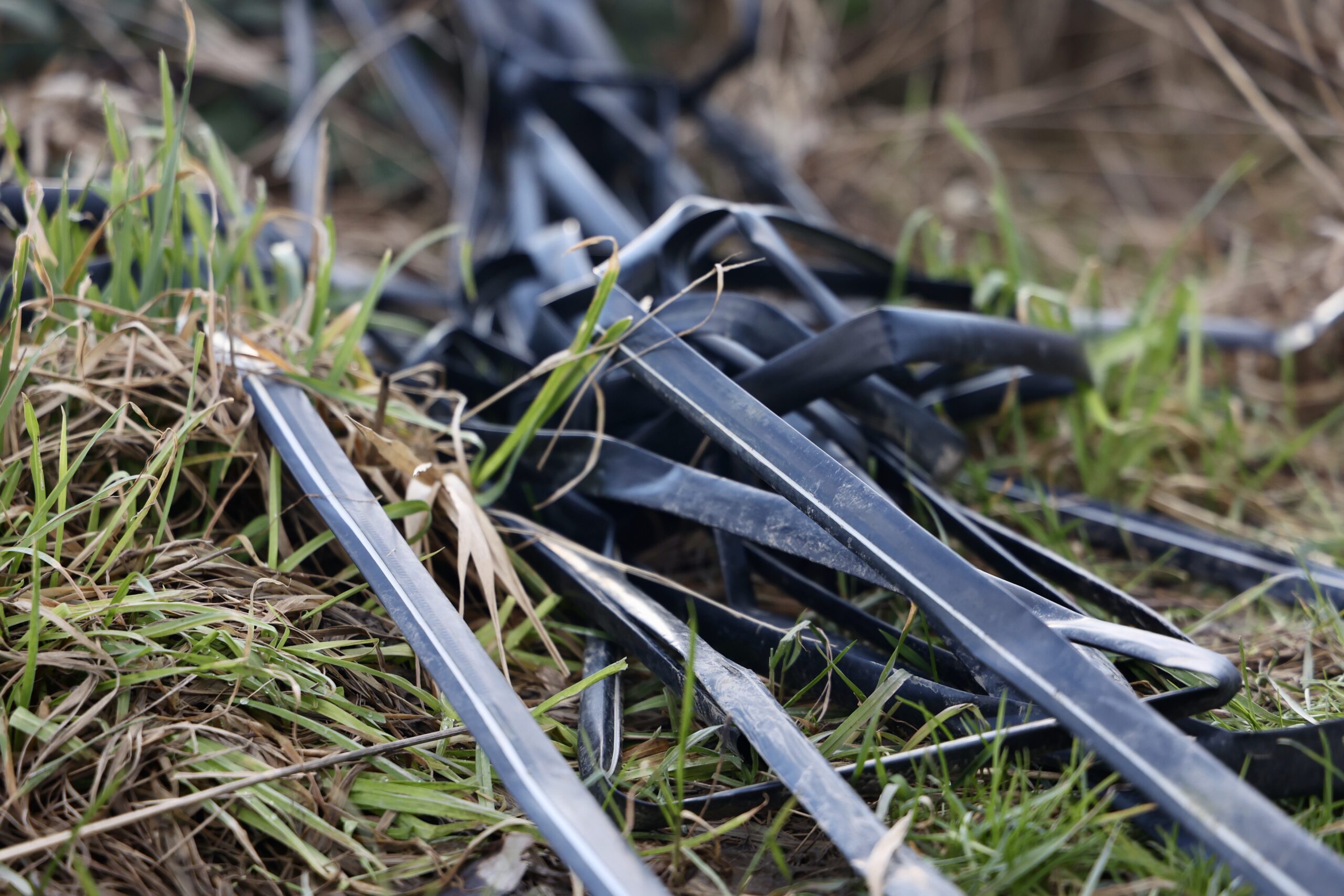 Irrigation tape and other supplies on both farms vanished or were damaged in the swift water. (Victoria Corkum/Cascadia Daily News)
Irrigation tape and other supplies on both farms vanished or were damaged in the swift water. (Victoria Corkum/Cascadia Daily News)
A few days after the flood, the Fontaines quickly realized that many necessities — packaging, sprayers, irrigation equipment — acquired over their 15 years of business had simply vanished. The flood swept away a portable toilet, fertilizer and seeds and inundated their tractors. The family’s last crops could not be sold because of contamination by the floodwaters.
“I certainly had the thought…‘Gosh, we might be out of business,’” said Fontaine, whose third child is due in April.
Joaquin and Liz Lopez endured even more losses at Mariposa Farm in Everson. Their two plots comprise more than 20 acres of vegetable and berry production that the couple started nine years ago.
The day of the floods, Joaquin Lopez awoke to the sound of his dogs barking at water trickling into the basement of his house. He hadn’t been worried about the floods because it hadn’t been a problem at their property near Nugents Corner.
“Now every time that I come to this greenhouse or to the barn, I always have the picture of when it was full of water.” — Joaquin Lopez, Mariposa Farm
The water rose to 3 feet in their finished basement and destroyed the furnace and boiler. Sheetrock, ductwork and carpet on the main floor needed to be replaced or repaired without the help of flood insurance because their property lies outside the floodplain.
Like the Fontaines, the Lopezes also lost crops and seeds that amounted to at least $45,000. Their barn and greenhouses were flooded, washing away onions, squash and potatoes they had planned to sell over winter. The rains also swept away rows of garlic that had just been planted.
“Now every time that I come to this greenhouse or to the barn, I always have the picture of when it was full of water,” Lopez said.
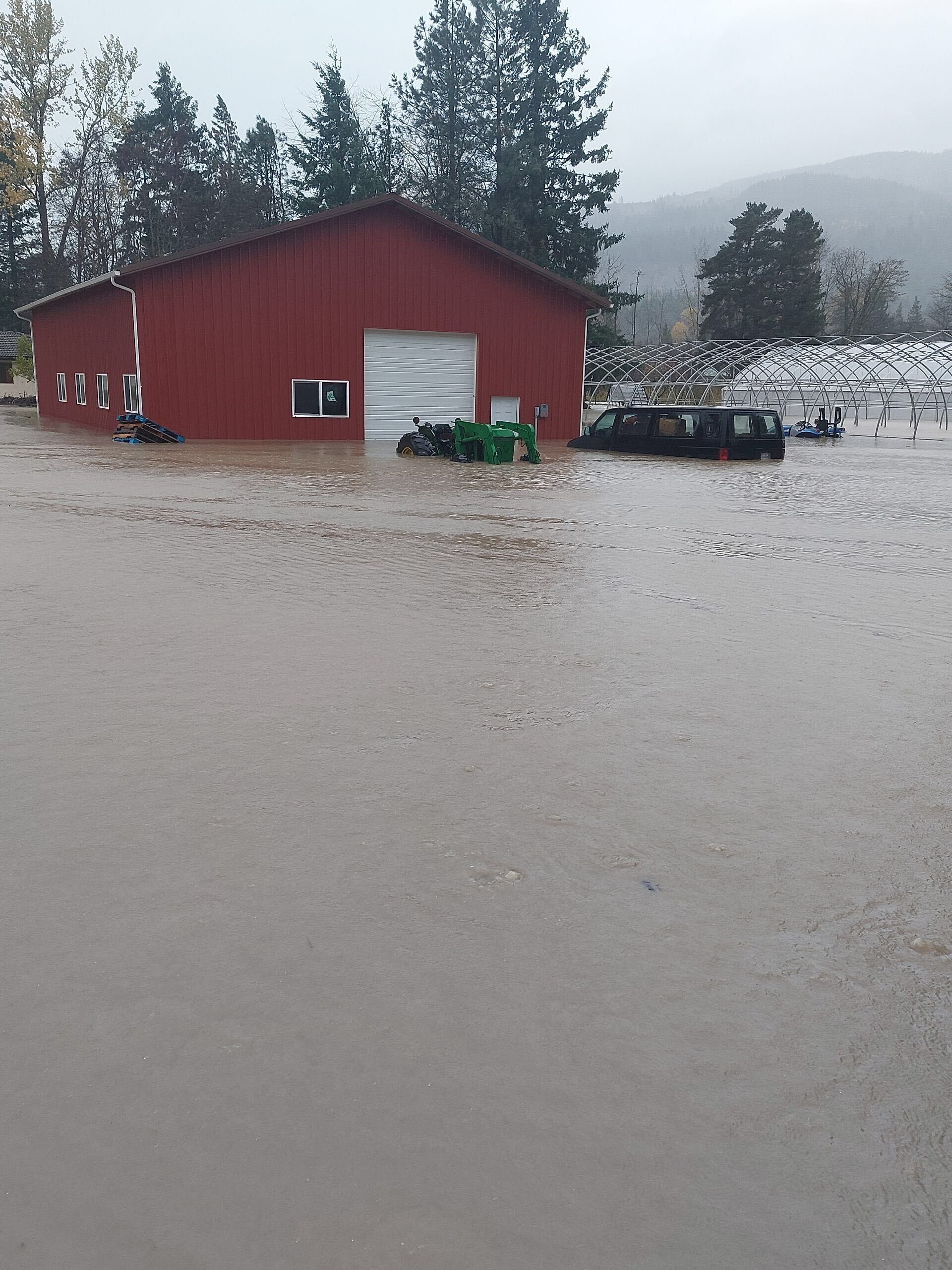 Floodwaters crested on Mariposa Farm on Nov. 15, 2021. Valuable crops and seeds stored in the flooded barn were swept away or inedible. (Photo courtesy of Joaquin Lopez)
Floodwaters crested on Mariposa Farm on Nov. 15, 2021. Valuable crops and seeds stored in the flooded barn were swept away or inedible. (Photo courtesy of Joaquin Lopez)
The families received community support in GoFundMe campaigns that raised more than $68,000 for Mariposa Farm and $34,000 for Terra Verde.
“It really left me speechless,” Fontaine said.
The Fontaines are using the funds to acquire much-needed supplies and to fix their tractors, while Joaquin Lopez is focused on repairing the extensive damage to his family’s house. Despite the help, they will be late for the growing season come spring.
“To be honest, I don’t know how it’s going to be this year,” he said. “But we have all our customers and buyers. They’re excited and they want us to keep going and that’s what we really want to do.”
The community funds have been essential for Terra Verde, which has not yet been able to receive federal assistance. Insurance helped replace their heating system, but they still paid $2,000 out of pocket.
The Small Business Administration and the USDA offer low-interest loans to cover the costs of damaged tractors, greenhouses and lost supplies. But Fontaine won’t risk more debt, nor is he sure it’s worth the effort.
“We are already two weeks behind on starting our seeds,” he said. “At a certain point we need to decide, do we spend hours filling out applications when there’s an 80% chance we will get denied or do we get going on starting up our business for the season?”
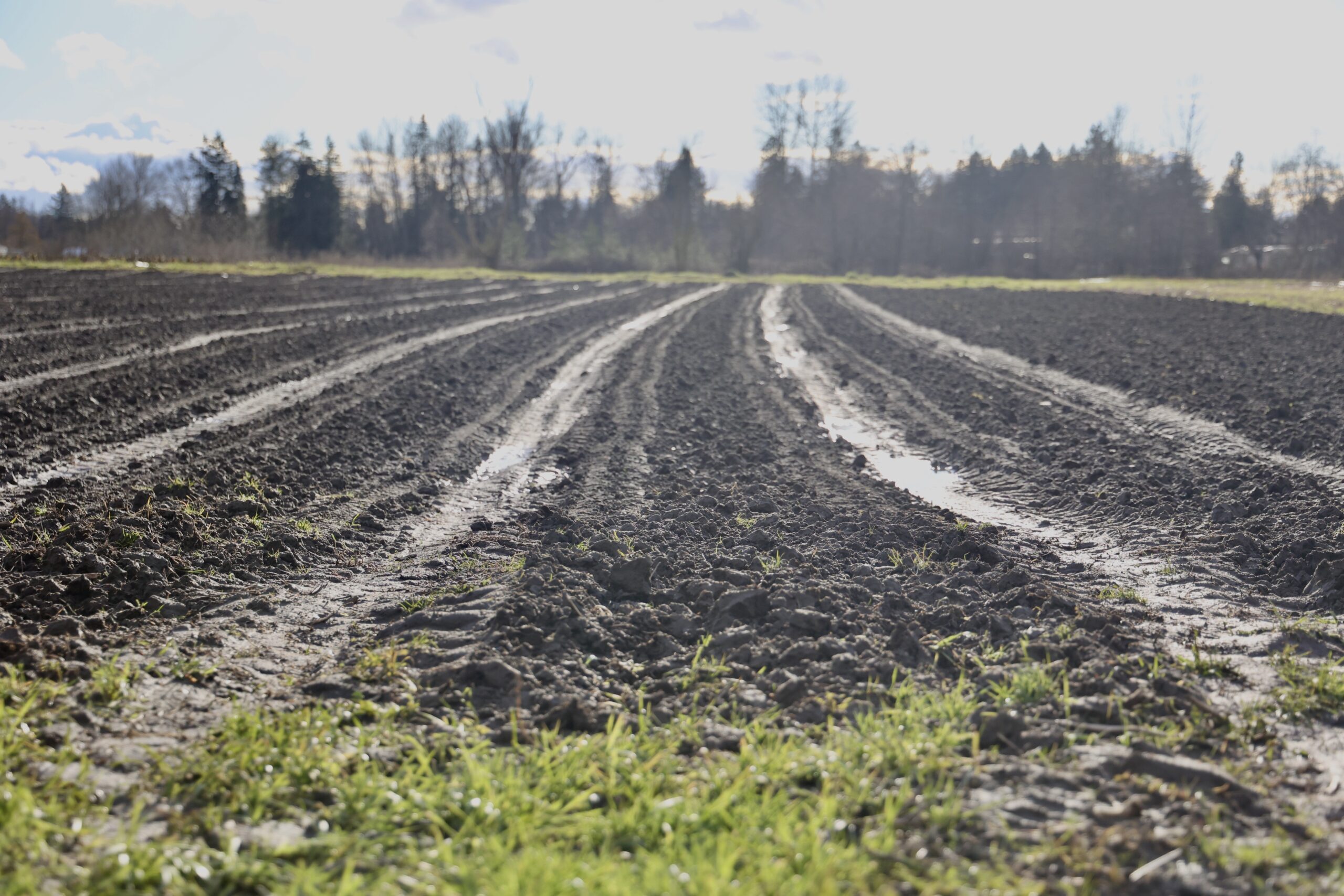 A plot on Terra Verde Farm is still thick with mud as the spring season approaches. (Victoria Corkum/Cascadia Daily News)
A plot on Terra Verde Farm is still thick with mud as the spring season approaches. (Victoria Corkum/Cascadia Daily News)
Both families plan to take steps to safeguard their homes and land against the next flood. At the same time, land and water managers also are investigating ways to mitigate future flooding.
Protecting farms and homes will require a new approach to managing the Nooksack, said Bierlink, who also serves as administrator for the Ag Water Board, a group that addresses water issues affecting agriculture in Whatcom County.
Just months before the flood, the Nooksack had exceptionally low flows resulting from record high temperatures and drought. Both high and low extremes damage salmon and agriculture, so stakeholders are prioritizing solutions for maintaining a healthy ecosystem along the Nooksack.
Whatcom Family Farmers, a nonprofit supporting farmers and educating the community about local agriculture, promotes better upstream water storage, sediment removal and levee improvements to control flows. The Nooksack Indian Tribe wants to reconnect rivers to floodplains and restore side channels that could absorb excess water during floods.
“We need a better approach to looking at things from a larger perspective, but that goes beyond flooding, that goes into water and natural resource management as a whole,” Bierlink said.
While state and county officials work toward a solution, both farms are focused on recovery — something that might not have been possible without the outpouring of community support.
“We want to move on from this experience,” Joaquin Lopez said, adding that the flood taught him to be better prepared for such disasters.
“If it happens, it won’t hit me like that again.”

